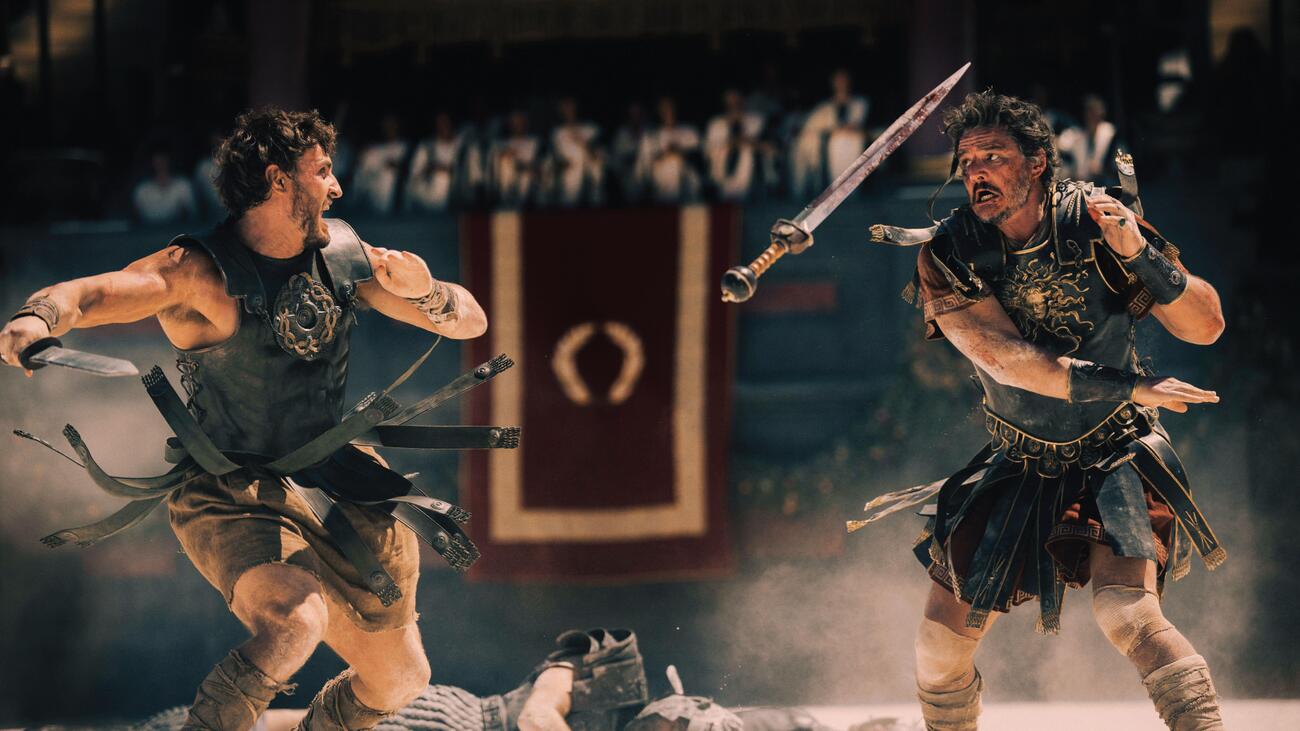The reality that gladiators lived didn’t always match the movies
Gladiator II, the long-awaited sequel to Best Picture Oscar winner Gladiator, arrived in North American cinemas on November 22, 2024.
UBC instructors Dr. Charmaine Gorrie (PhD'97) and Dr. Siobhán McElduff teach a course called Gladiators, Games, and Spectacle in the Greek and Roman World, offered by the Department of Ancient Mediterranean and Near Eastern Studies.
We spoke with them about the real world of Roman gladiators and how it compares with the movies.
When most people think of ancient Rome, their mind goes straight to gladiators. Why do you think that is?
Dr. Siobhán McElduff (SM): When we think of Rome, we think of it as a military power, which it was. What we're often interested in, I think, is its brutality, and gladiators give us that. Gladiatorial games were important because they were thought to encourage people to want to fight, and to accept death willingly.
Dr. Charmaine Gorrie (CG): It’s also what popular culture portrays — all the movies like Gladiator, for example, but also older ones like Spartacus or the sword-and-sandal movies of the 1960s.
What was the purpose of gladiator events?
SM: In the republic, they used them in competition for votes. You would put on a big event which would include gladiators, and you hope people voted for you in return. They were a gift to the people of Rome, but with expectations. It's very important to remember that these things are free — they don't charge, and you get free prizes.
CG: When we get to the imperial system, it basically gets taken over by the emperors. They're using it to show their political power, their strength, and their beneficence to the people. By the time you get to emperor Trajan in the second century, we have 10,000 gladiators fighting at games that lasted 120 days. So they become much more spectacular, with many more gladiators fighting.
Movies often take liberties with the facts. What would I be surprised to learn about gladiators if all my knowledge comes from movies?
CG: They fought one-on-one, with different types of gladiators against each other. They'd have different weapons and skills. That was part of the attraction — to watch how fighting styles matched up. And they didn't die all the time. Some people estimate that only 10 to 20 per cent of gladiator fights ended in death. It’s expensive to kill them because they’re professionals and you have to rent them out from a gladiator school. If you killed them, you'd have to pay their full price.
SM: It wasn’t just about death: You’d have to get imperial consent to make the gladiators fight with sharp weapons. So they would use blunt weapons — though you can still die that way.
The first Gladiator film revolved around the hero Maximus and his nemesis, the emperor Commodus. Gladiator II focuses on Commodus' sister and nephew, Lucilla and Lucius. How important are they as historical figures?
CG: In historical reality, they wouldn't be around for the sequel. Lucilla was actually involved in a plot to overthrow her brother in 182, which the first movie does show. It was discovered and she was exiled, then eventually killed — many years before the end of Commodus' reign. Her son Lucius died young, sadly, so they didn't even exist at the time that Gladiator II is showing them.
As scholars of ancient Rome, what goes through your mind as you watch these movies?
SM: I've always thought it’s not spectacular enough. I'm like, “No Roman crowd would have been satisfied with this!” They were sophisticated. By the time of Commodus, they’d had hundreds of years of watching these people fight. These were big, spectacular events, and they were centrepieces of the empire. They threw money at them like it was going out of style.
CG: The crowd had a lot of power. This was the chance for the crowd to see the emperor and perhaps voice displeasure, because you could have anonymity and demand things. The person giving the games would often have to concede to them, because otherwise it wouldn't be popular. It’s very clear that the relationship was more fraught than the movies make it out to be.
































